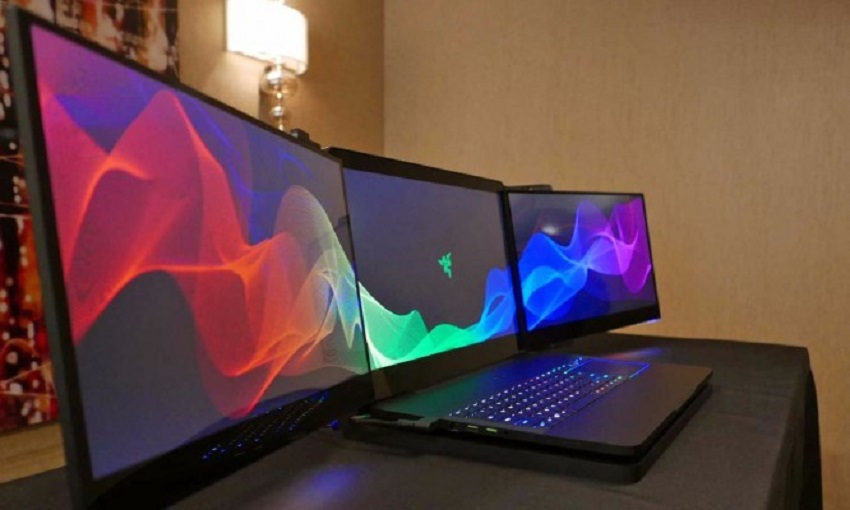Knowing when to replace or upgrade a computer can be difficult as we want to get as much life out of a laptop as possible. That said, nobody wants to experience downtime, especially if you rely on your computer for work. Consequently, laptops need to be replaced before they break down completely.
The general consensus is that laptops should be replaced around every four years, although this is a vague guideline and laptops can run perfectly fine for twice that time and even longer. It all depends on what the laptop is being used for, with the one of the main problems such computers have being the programs they run are constantly evolving and improving.
Newer and more demanding software updates cause the computer to work harder and harder as time goes on, and eventually past its original capacity. This causes the computer to run slower, overheat and crash. Thankfully though, replacing laptops is getting cheaper every year.
Laptop Prices Getting Cheaper
There are plenty of excellent laptops around these days for affordable prices. While higher end laptops are getting even more powerful than similarly priced models just a few years ago, lower end budget laptops are also benefiting from technological advancements. So, if your laptop is noticeably slowing down, overheating or occasionally crashing, then an upgrade or replacement from Best Daily Deals Sites won’t set you back as much as it would have just a few years ago.
However, before you do decide to replace your creaking computer, there are few laptop tips and tricks to try first as the most common issues can sometimes be solved with a little bit of clever housekeeping.
Defragging the Hard Drive and Deleting Junk Files
Lots of computer files end up becoming fragmented over time, which means that bits of them are saved in different places on the hard drive. This causes the computer to behave slowly as it searches for the relevant parts of a file when you try to open it. This happens over time because of the way computers use the memory space, filling up spaces freed by deleted files with newly saved files. They do this even if the recently vacated space is not big enough for the whole of the new file, thus the newly saved file becomes fragmented. To solve this issue, simply defrag your laptop using any of the defragmentation tools online that you can download for free to speed up your computer’s file-accessing time.
In addition to defragging your hard drive, also delete all the junk files your computer has amassed over time. By themselves the junk files, such as the browser’s cache of stored web address information, do not actually use too much memory. But over time and usage a laptop’s browsers can gather enough of them that it starts to slow down the computer’s operation.
Also delete any ‘temporary files’ the computer is storing, ideally straight after rebooting the computer to avoid having to skip over any that are in use.
Reinstall the Operating System
Reinstalling the OS has a number of benefits, though you should be aware that you will lose your current customisation settings when you do. If you are happy to reapply any necessary customisations afterwards then you can significantly speed up your computer if indeed it is possible at all.
Firstly, the OS reinstallation process will automatically get rid of all the junk programs that can cause significant slowing down. Secondly, any and all malware will also be removed during the reinstallation process. It is basically like a complete reset, though again remember this will also remove all of your customisations, such as browser bookmarks, display settings and other personalisations.
Additional Measures to Speed Up Your Computer
Occasionally cleaning laptops by scanning and removing any malware can help prolong the longevity of the machines.
As well as cleaning up the keyboard and screen, pay special attention to the vents underneath the laptop. Use a vacuum cleaner and canisters of air to clean the laptop without damaging the inner parts.
Keeping the vents clean and clear is crucial to helping your computer moderate its own temperature. The risk of overheating increases as the vents become clogged with dust and dirt over time, with that risk multiplying massively as the laptop gets older and starts working harder to run the new software updates.
Another option that might be better than buying a entirely new computer is to purchase an external hard drive. This can store all the memory-heavy items you require and will connect to your laptop via the USB port. This allows your computer to do what it needs to without the burden of storing all the memory-sapping files and data itself.
When looked after well, quality laptops can work well for many years. However, common sense prevails that if the machine is old and is starting to run slowly, replacing a laptop sooner rather than later, could be a savvy move to help prevent frustrating business downtime caused by a broken down laptop.
